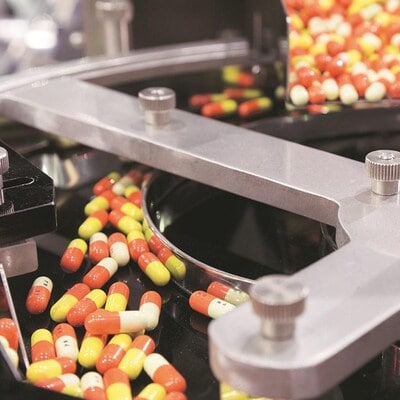Mumbai-based Wockhardt to launch its novel antibiotic Zaynich by FY25-end
In what could be a major breakthrough for antibiotic research, Mumbai-based Wockhardt is all set to launch its novel antibiotic candidate WCK 5222, or Zaynich, in India by the end of 2024-25, followed by a global launch in 2025-26. The total addressable market for the antibiotic is estimated to be around $25 bn globally.
Wockhardt expects no competition for this drug worldwide for at least the next 15 years as there is no other similar drug in research pipelines. In India, around 750,000 patients are suffering from antimicrobial resistance (AMR), while in the US this number is around 500,000 and in the EU it is about 700,000.
According to Wockhardt Chairman Habil Khorakiwala, the price of the antibiotic in India would be one-tenth of its global price.
Zaynich — a combination of Zidebactam and Cefepime — is effective in treating infections caused by drug-resistant pathogens. Basically, the drug is effective against all major superbugs that have become resistant to almost all antibiotics used today — often referred to as multi-drug resistant (MDR), or extensively drug resistant (XDR) pathogens. Globally, mortality rate in patients infected with MDR superbugs is in excess of 30 per cent.
Earlier this month, the Clinical and Laboratory Standards Institute (CLSI) granted the drug a susceptibility breakpoint of 64 mg/litre for around 10 gram-negative pathogens. The higher the breakpoint, the more effective a drug is in handling different strains. To put things in perspective, some of the recent antibiotics have a susceptibility breakpoint of 4-8 mg/litre.
Wockhardt said this high breakpoint is proven against all the three families of gram-negative pathogens — Enterobacterales, Pseudomonas and Acinetobacter.
In over a year, Zaynich has been used to treat 30 patients under compassionate use for those who were suffering from infections caused by extreme drug-resistant gram-negative pathogens. It has not only shown a 100 per cent success rate, but has also been found to be safe even after prolonged use for 70 days in critical patients.
Typically, this injectable drug is administered for a week if the patient gets it in early stages of the infection. The drug is currently undergoing a multinational phase-3 study on 535 patients (of which recruitment of around 415 patients is done). This study is expected to be completed by 2024-25.
“Post this, it would take us four-five months to file for approval, and an USFDA (US Food and Drug Administration) nod is expected in another six months from then. Therefore, in the US and other countries, we expect to launch this drug in 2025-26,” Khorakiwala said.
Zaynich has been granted Qualified Infectious Disease Product (QIDP) status by USFDA as it targets several critical and high-priority superbugs listed by World Health Organization (WHO), Centers for Disease Control and Prevention (CDC) and USFDA. As the drug candidate addresses unmet needs in the management of difficult-to-treat infections, USFDA has approved an abridged clinical development for WCK5222.
As for India, the launch would be earlier. Khorakiwala said the Drugs Controller General of India (DCGI) has asked for a stringent trial on 60 patients, who are resistant to Meropenem. The first patient for this trial is getting recruited in a week, and the trial is expected to complete in six-eight months. The India launch is, therefore, likely by the end of 2024-25.
Wockhardt has spent $500 mn in research and development in the last 25 years. The company did not share a break-up of the investments made for this drug.
However, only recently, the company spent around $25 mn it raised through an QIP (qualified institutional placement) earlier this year on Zaynich trials. The company has also used Rs 100 crore from the QIP proceeds to retire debt, and currently, its non-working capital debt stands at Rs 300-odd crore, Khorakiwala said.
First Published: Jun 28 2024 | 8:07 PM IST
